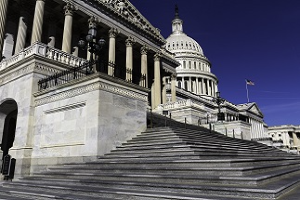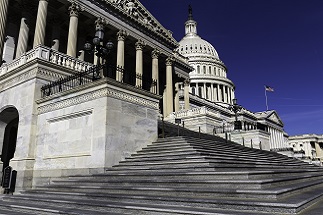
House Pushes Through Senate’s Harmful Budget Reconciliation Bill, Ignores Warnings From National, State, and Community Organizations
It is gut-wrenching that as the nation prepares to celebrate America’s birthday, House Republicans have decided to rip away the food assistance, health care, and other basic needs that support the independence of tens of millions of people in all corners of the country by passing (218–214) the Senate’s version of the budget reconciliation bill. Read more in FRAC’s statement.

- 2025 Budget Reconciliation: Oppose Cuts to the Federal Food and Nutrition Programs
- Creating a Healthier Future by Protecting and Strengthening the Child Nutrition Programs
- Creating a Healthier Future by Protecting and Strengthening the Supplemental Nutrition Assistance Program (SNAP)
- Fiscal Year 2026 Budget and Appropriations Priorities for Food and Nutrition Programs
-
-
Visit Farm Bill 2025 for all Farm Bill legislation and actions.
-
Visit Budget, Reconciliation & Appropriations for all relevant legislation and actions.
-
Visit our Healthy School Meals for All (HSMFA) microsite for all HSMFA legislation and actions.
-
Visit FRAC’s Bills We’re Supporting page for additional priorities for families struggling against hunger.
-

SNAP Matters: Quotes from Participants
SNAP matters. Learn why in FRAC’s new SNAP Matters two-pager, which features quotes from SNAP recipients on the federal nutrition program’s value and importance. Learn why proposed cuts to SNAP would be disastrous for people with low incomes by exploring the testimonials of SNAP participants.

Budget Reconciliation 101
Curious about Budget Reconciliation? Unsure about the process or special rules to look out for? Explore this three-page report that explains what you need to know.

Sign Up for the FRAC Action Network!
Urge your Representatives to support and strengthen the Federal Nutrition Programs. Learn about the latest opportunities for action by signing up for the FRAC Action Network. Hungry people can’t wait.
Take Action

Organize a Site Visit
Read More
Recent Publications & Data
See More Resources- Fact Sheet
The Summer EBT (Electronic Benefit Transfer) Program provides families with approximately $40 a month per eligible child to help with food costs during the summer months. This case study highlights how six states determined their administrative funding levels for the first year of Summer EBT implementation, as well as considerations for those states that have not yet participated.
Read the fact sheet - Fact Sheet
The Supplemental Nutrition Assistance Program (SNAP) helps millions of families put food on the table every month. It provides women, LGBTQIA+ people, and their families with critical nutrition assistance that supports their health and well-being.
Yet the House-passed budget reconciliation bill and Senate proposal seek to make wide-reaching cuts to SNAP, including by expanding time limits. Learn how these proposals would harm women, LGBTQIA+ people, and families in a new resource from FRAC and the National Women’s Law Center.
Read the fact sheet - Report
More schools and school districts are offering free school meals to all students through the Community Eligibility Provision (CEP), according to FRAC’s latest report, Community Eligibility: The Key to Hunger-Free Schools. This report analyzes CEP adoption—nationally and for each state and the District of Columbia—in the 2024–2025 school year.
Read the report - Report
In February 2025, the president signed an Executive Order established the Make America Healthy Again (MAHA) Commission. The Commission is tasked with investigating and addressing the root causes of America’s escalating health crisis, with an initial focus on childhood chronic diseases. Within 180 days, the Commission will use the findings from the assessment to create a strategy aimed at improving the health of America’s children.
Read the report here
News
FRAC Chat
The Senate-passed budget reconciliation bill is now headed back to the House, where a final vote is expected today or tomorrow. Although the Senate version costs slightly less overall, its provisions are more punitive and far-reaching in their harm. Most of the bill’s core provisions remain unchanged. The few amendments made — largely to comply with parliamentary rules or secure enough Republican votes — further underscore the bill’s inequities. Below is an overview of the most consequential changes. A full side-by-side comparison of the House and Senate versions can be found [here].
As the budget reconciliation process advances, Senate Democrats and a growing number of state leaders continue to raise the alarm about the devastating impacts of the proposed changes to the Supplemental Nutrition Assistance Program (SNAP). Advocates have been working nonstop, warning lawmakers, especially Republicans who are leading this bill, of the unprecedented shift and dire consequences this bill would cause.
Annually, the U.S. Department of Agriculture (USDA) issues a report on the characteristics of households and individuals participating in the Supplemental Nutrition Assistance Program (SNAP). The most recent report released in April provides details about fiscal year 2023 program participants, and critical insights for lawmakers, advocates, and stakeholders, while simultaneously pushing back against harmful narratives that have been perpetuated about households participating in SNAP.
